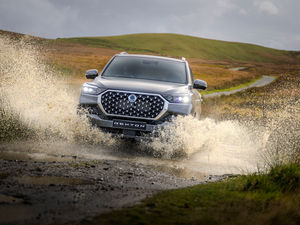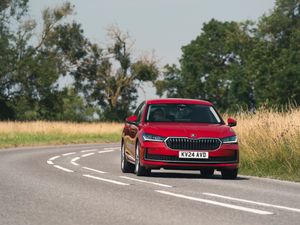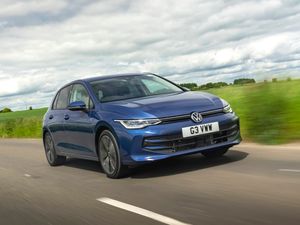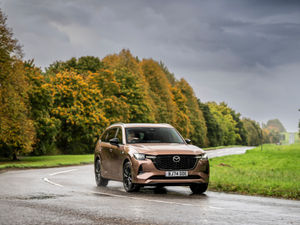UK Drive: The Toyota Yaris Cross has been given some subtle changes for 2024
The Yaris Cross essentially is a cheaper Lexus LBX, but can this new and improved version take it to the top of the class? Cameron Richards finds out.
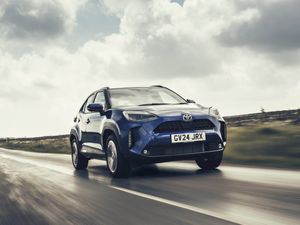
What is it?

Though SUVs have become the norm on our roads, Toyota pretty much wrote the rule book when it launched its first RAV4 back in 1994.
But, as the market became flooded with newer and bigger models, the firm’s supermini, the Yaris, felt it could be given a new edge with a more upright model. So, in 2021 the Yaris Cross was born.
Underneath its skin, you’ll find the same chassis and underpinnings from its posher sibling, the Lexus LBX.
What’s new?

After three years on sale, Toyota has decided to give its Yaris Cross a few subtle tweaks to make it better than before.
In terms of styling, you have to be an aficionado in design to spot the difference but, take a closer look and you’ll notice some changes to the lower front bumper a couple of new paint colours and alloy wheels designs – but, apart from that, everything has remained the same.
When you step inside, the majority of the changes have been made on the interior with a larger 12.3-inch infotainment screen and there are some new seat upholstery designs, too.
Meanwhile, under the bonnet now features the option of a new and improved 1.5-litre petrol-electric hybrid unit that produces 132bhp alongside the less powered 114bhp version as well.
What’s under the bonnet?

We are driving the new higher-powered 1.5-litre three-cylinder petrol engine with an electric motor that, when the two are combined, gives out 132bhp and 120Nm of torque. Acceleration has improved taking the car from 0-60mph in 10.5 seconds and goes on until it runs out of puff at 105mph.
You can also get this engine with a smaller power output of 114bhp, which is available on cheaper models in the range.
What’s it like to drive?

The Yaris Cross feels immediately at home around town. With its hybrid powertrain, you can drive the car up to 30mph on electric power alone, making everything quiet, smooth and relaxing.
We took our test car through a mixture of open roads and motorways and it achieved an average miles per gallon reading of 56.3mpg – not too far from the manufacturer’s claim.
Even though it’s taller than the standard Yaris, the Cross still handles really well with little body lean around the corners and it’s surprisingly agile, too. The driving position is also a strong point as you sit more in the car than on it, with plenty of adjustment in the steering wheel itself.
Unfortunately, put your foot down and the groan from the CVT automatic gearbox bursts into life making the experience coarse and unrefined. At higher speeds, there is a fair bit of wind and road noise that enters the cabin as well.
We are driving the GR Sport model that comes fitted with sports suspension and although it’s not uncomfortable, the ride is firm with larger bumps and potholes upsetting the car with it fidgeting and shaking over the uneven road surfaces. Also, when reversing, the rear-view camera has a very low resolution making it look out-of-date and even harder to see out of the back than it already is.
How does it look?

Toyota has been making some great-looking cars recently, and the Yaris Cross fits into this category with its sharp and angular stance. Plus, the large plastic wheel arch trims and two-tone roof make the car differentiate itself compared to a regular Yaris.
Our GR Sport car enhances the look even further with its diamond-cut alloy wheels, GR badging and two-tone roof as well as Platinum white pearl paint finish.
What’s it like inside?

If you’ve been in a Toyota Yaris, then the Cross will feel like second nature as it essentially is the same. That means everything feels well screwed together and built to last. All the controls are logically laid out and the new 12.3-inch touchscreen is slick and easy to use.
Storage is decent enough with cupholders, large door bins and a centre armrest that doubles up as somewhere to hide your mobile phone. However, climb into the back and you’ll note that the rear doors don’t open that wide making it harder to clamber aboard and then you’ll find everything is a little dark and dingy.
But, head and legroom are perfectly acceptable for average-sized adults, it’s just a pity that the centre passenger will find it hard to get comfortable due to the lack of shoulder space.
In the boot, the Yaris Cross comes with a 40:20:40 seat configuration which allows greater access for those looking to transport skis or longer flat-pack furniture. With the rear seats in place, there is 397 litres of space, but fold them down and that transforms into a total of 1,097 litres — even though the seats don’t fold flat. But, there is a nifty false floor that can split into two sections to keep valuables out of sight.
What’s the spec like?

The Yaris Cross range isn’t too complex for buyers making a decision as there are five models to choose from including Icon, Design, Excel, GR Sport and Premiere Edition.
All models come as standard with front-wheel-drive, although Excel and Premiere Edition models do come with the option of all-wheel-drive.
The range kicks off at £25,530 for the basic Icon trim with standard equipment including automatic headlights and wipers as well as keyless entry and push button start.
Our test car is the GR Sport model which features sports suspension, suede and leather GR seats and a perforated leather steering wheel.
The top-of-the-line Premiere Edition comes in at £32,500 and adds equipment such as a JBL premium audio system and a 10-inch coloured head-up display.
Verdict
The B-segment crossover class is one of the hardest and most competitive in the new car market. However, Toyota has pulled it off with the new and improved Yaris Cross as it offers a great drive with smaller running costs.
It also comes with plenty of standard equipment and great looks to keep it in-line with cars like the Nissan Juke and Peugeot 2008. It may not be the most practical in this segment, but it still offers plenty of upsides to owning one of these very likeable SUVs, and with the added benefit of Toyota’s legendary hybrid powertrain, you can’t go wrong here.


